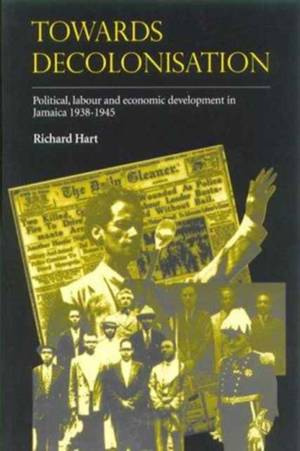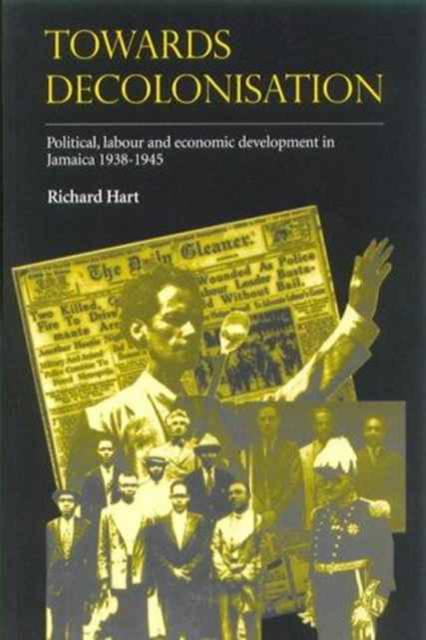
- Retrait gratuit dans votre magasin Club
- 7.000.000 titres dans notre catalogue
- Payer en toute sécurité
- Toujours un magasin près de chez vous
- Retrait gratuit dans votre magasin Club
- 7.000.0000 titres dans notre catalogue
- Payer en toute sécurité
- Toujours un magasin près de chez vous
Towards Decolonisation
Political, Labour and Economic Developments in Jamaica 1938-1945
Richard HartDescription
The work considers the repercussions to the outbreak of World War I and discusses the relationships, rivalry and conflicts among popular organisations in the 1940s. Labour struggles, trade union activities and the policies of rival political parties are recorded and examined. Renewed demands for constitutional reform in 1941 and the rejection of the British Government's inadequate response to these demands hold some focus.
The author examines constitutional concessions made in 1943 and representations made thereon by local organisations, leading to the introduction of a new constitution based on universal adult suffrage in 1944. The conclusion is drawn that this did not represent a firm commitment to decolonisation but the beginnings of a movement towards it.
Spécifications
Parties prenantes
- Auteur(s) :
- Editeur:
Contenu
- Nombre de pages :
- 352
- Langue:
- Anglais
- Collection :
Caractéristiques
- EAN:
- 9789768125330
- Date de parution :
- 01-08-99
- Format:
- Livre broché
- Format numérique:
- Trade paperback (VS)
- Dimensions :
- 153 mm x 231 mm
- Poids :
- 476 g

Les avis
Nous publions uniquement les avis qui respectent les conditions requises. Consultez nos conditions pour les avis.






